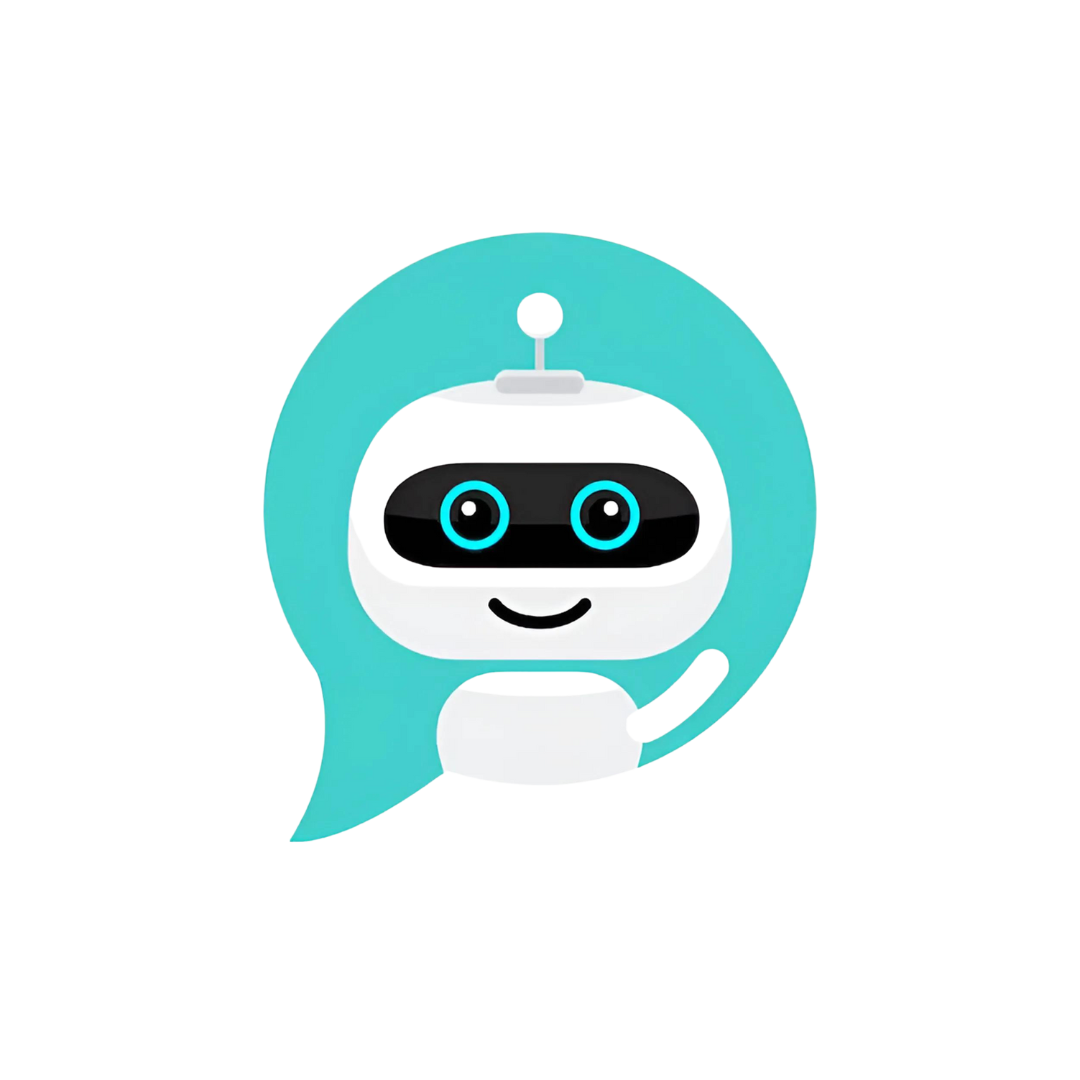Land Your Dream Job as a Microsoft Professional
ASP .Net Core Full-Stack Developer
6 Months
Integrated Boot Camp
Full-stack Development
Azure Cloud
Deployment
Placement Assured
Cloud Native,
Cross Platform
In-Demand Skills
Higher Salaries
ASP.Net Core Full-Stack Developer Program is an integrated, full-stack Developer Training Bootcamp designed to transform both beginners and experienced software developers into expert software engineers skilled and experienced in cutting-edge Microsoft Web Technologies, tools and frameworks. This program is the perfect gateway into Microsoft Azure Cloud, Microsoft Power Platform and Microsoft Dynamics 365 ERP and CRM Suite, which are the most respected and highly paid professions in the IT industry.

Project Oriented,
Team Based
Led by
Industry Experts
Kickstart Your Tech Career



ASP.Net Core Full-Stack Developer Profile provides an excellent entry into the Elite Microsoft Tech Community, which offers highly secure and respected positions with top corporations around the world. This career is an essential stepping stone into the more lucrative professions such as Azure Cloud Engineer, Artificial Intelligence(AI) /Machine Learning(ML) Engineer, Microsoft Power Platform Developer and Microsoft Dynamics 365 Consultant.
Throughout this program, you will learn the ins and outs of web development, from understanding the basic structure of the web to developing complex and scalable web applications with ASP.NET Core MVC and building Web APIs using RESTful principles.
Master Data Access & Security
In addition, you will gain a solid understanding of databases and data access in ASP.NET Core, learning to use Entity Framework Core(EF-Core) to persist data and create complex data models. You will also become familiar with middleware and services, authentication and authorization concepts, and testing and deployment best practices.
Become a Front-end Development Expert
You will also become well-versed in client-side web technologies such as HTML, CSS, JavaScript, Bootstrap and Angular as well as the powerful and popular C# programming language.
By the end of this program, you will be equipped with cutting-edge skills that are highly sought after in the IT industry, setting you apart from other developers and giving you a competitive edge in the job market.
Table of Contents
- Program Objectives
- ASP.Net Core - An Overview
- ASP.Net Core Components
- Cloud Native Web Technology
- Program Outline
- Your Entry to Microsoft Tech Community
- Training Methodology
- Beyond ASP .Net Web Development
- Who is Eligible?
- Program Duration & Mode of Delivery
- Program Fees & Payment Options
- Join Now - Kickstart Your Tech Career


What will you Learn in this Training Program?
Program Objectives
The primary objective of this training program is to equip you with the skills and knowledge necessary to become a successful Full-Stack developer in the modern software industry. Through the program, you will learn how to design, develop, and deploy web applications using the latest web development technologies and practices.
The program will teach you the fundamental concepts of web development and give you a solid understanding of the technologies used in modern web development.
This knowledge will help you build a strong foundation for your career as a Full-Stack Developer
- Building professional grade web applications using HTML, CSS and JavaScript.
- Developing responsive and mobile-first front-end applications using Bootstrap.
- Developing scalable, high performance Single Page Applications (SPA) using Angular and TypeScript.
The program will teach you how to create web applications using ASP.Net Core, one of the most popular web development frameworks used in the industry today.
This will help you gain a competitive edge in the job market and increase your chances of landing a high-paying job.
You will gain an understanding of the underlying architecture of web applications, including front-end technologies such as HTML, CSS, and JavaScript, as well as back-end technologies like databases and web servers.
ASP.Net Core training program teaches how to design and implement RESTful web services using the ASP.Net Core framework.
RESTful web services adhere to the principles of REST, which include using standard HTTP methods to perform CRUD operations on resources, using URIs to identify resources, and using hypermedia to provide a navigable interface to the resources.
The program also covers different tools and libraries available for building RESTful web services.
Mastering the skill of building RESTful web services makes you a desirable candidate for web development positions that require experience with web services and API development.
Implementing security features is an essential aspect of web development, and ASP.Net Core training program covers this topic extensively. You will learn how to secure your ASP.Net Core web applications by protecting them from potential threats such as cross-site scripting (XSS), SQL injection, and other attacks.
In the training program, you will learn about various security features of ASP.Net Core, such as authentication and authorization, identity management, and role-based access control. You will learn how to use these features to authenticate users, manage user identities, and authorize access to different resources within your application.
By mastering these skills, you will be able to create secure and reliable web applications. This skill is highly sought after by employers who are looking for developers with a strong understanding of web application security.
In this program, you will learn about the different Azure deployment options available for ASP.Net Core web applications, such as Azure App Service, Azure Virtual Machines, and Azure Kubernetes Service (AKS). You will learn how to deploy web applications to these services using Azure DevOps, Visual Studio, and other tools.
The training program covers essential concepts of Azure deployment, such as resource groups, deployment slots, and scaling options. You will learn how to monitor and manage your deployed web applications using Azure Portal and Azure Monitor.
Mastering the skill of deploying ASP.Net Core web applications to Azure makes you a valuable asset to any organization looking to leverage the benefits of cloud computing. Azure is one of the leading cloud platforms, and many organizations are moving their applications to Azure for scalability, reliability, and security. By mastering this skill, you can open up many career opportunities in the field of cloud web development.
The program covers the use of Entity Framework Core (EF Core), which is a popular object-relational mapping (ORM) tool that allows you to work with databases in ASP.Net Core. You will learn how to use EF Core to create data models, perform migrations, and write LINQ queries to interact with databases.
The program also covers database normalization, indexing, and transaction management. You will learn how to design databases, create tables and relationships, and optimize database performance.
Mastering the skill of working with databases and data access technologies makes you a valuable asset to any organization that requires expertise in managing and manipulating data. This skill is in high demand as many web applications rely heavily on databases and data access technologies. With this skill, you can open up many career opportunities in the field of web development.
In the program, you will learn how to develop applications using modern software development practices that emphasize code quality, maintainability, and scalability.
The program covers topics such as code organization, Test Driven Development (TDD), and continuous integration and deployment(CI/CD). You will learn how to structure your code into modules and components that are easy to understand and maintain. You will also learn how to write unit tests to ensure that your code works correctly and how to use continuous integration and deployment (CI/CD) tools to automate the software development process.
The program also covers agile software development practices, which are widely used in the industry to ensure that software projects are completed on time and within budget. You will learn how to use agile methodologies such as Scrum and Kanban to manage software projects and collaborate with team members effectively.
Mastering the skill of developing applications using modern software development practices makes you a desirable candidate for web development positions that require experience with modern software development practices. This skill is in high demand as many organizations are looking for developers who can write high-quality, maintainable, and scalable code. With this skill, you can open up many career opportunities in the field of web development.
- Using SCRUM for managing software product development in an agile model.
- Using XP (Extreme Programming) practices such as Test-Driven Development (TDD), Pair Programming, and Continuous Integration and Delivery for efficient software development.
- Using Kanban for tracking project progress and efficiency of the team.
- Git for Source Control
- Github for hosting the codebase.
- Trello for Task Management
- Jira for Issue Tracking
- Visual Studio Code as IDE (Integrated Development Environment)
- Diagrams.net/Draw.io for creating UML Diagrams and other System Design Diagrams
- Figma for UI/UX Designing
The most in-demand Web Technology from Microsoft
ASP.Net Core - An Overview
ASP.NET Core is a cross-platform, high-performance, open-source framework from Microsoft for building modern, cloud-enabled, Internet-connected apps.
ASP.NET Core apps can be developed and run on macOS, Windows, Linux, and Docker. It was first released in 2016 and is a re-design of earlier Windows-only versions of ASP.NET.
With ASP.NET Core, you can:
- Build web apps and Web API services, Internet of Things (IoT) apps, and mobile backends.
- Use your favorite development tools on Windows, macOS, and Linux.
- Deploy to the cloud or on-premises.
- Run on .NET Core.
Powerful Set of Technologies for end-to-End Web Development
ASP.Net Core Components
- ASP.Net Core MVC
- ASP.NET Core Blazor
- Razor Pages
- Angular & React Templates
- Entity Framework (EF) Core
- ASP.NET Core SignalR
- gRPC on .Net Core
A rich framework for building web apps and APIs using the Model-View-Controller design pattern.
A framework for building interactive client-side web UI with .NET Core and C# Programming Language.
A web page markup syntax for embedding .NET based code into web pages.
SPA (Single Page Application) Templates for Angular and React
Offers the ability to develop Angular and React apps that are hosted inside a .NET backend server.
A modern object-database mapper for .NET. It supports LINQ queries, change tracking, updates, and schema migrations. EF Core works with many databases, including SQL Database (on-premises and Azure), SQLite, MySQL, PostgreSQL, and Azure Cosmos DB.
An open-source library that simplifies adding real-time web functionality to apps that enables server-side code to push content to clients instantly.
A modern, language agnostic, high-performance Remote Procedure Call (RPC) framework, ideal to build point-to-point real-time services and lightweight microservices.
Your Gateway Into Microsoft Azure Cloud Web Development
Cloud Native Web Technology
ASP.Net Core provides an excellent starting point to Microsoft Azure Cloud based web development by offering cross-platform capabilities and modern web development features. It allows developers to easily leverage Azure’s cloud services, such as App Service and Functions, for scalable and flexible application hosting.
Cloud Security & scalability
ASP.Net Core also includes built-in features for secure and reliable web application development, such as authentication and authorization support and caching and optimization. By combining the scalability and flexibility of Azure with the ease of use and built-in features of ASP.Net Core, developers can build high-quality web applications that can easily scale to meet changing demands.
Rising Demand and Shortage of Supply
Azure based web developers are in high-demand with top software houses including Microsoft, Amazon, Accenture, Deloitte and Infosys. The demand for ASP.Net Core Full-Stack Developers are in the rise and the industry is already facing a shortage of talented Software Engineers with this skill.


Program Outline
Below is the high-level outline of The ASP.Net Core Full-Stack Developer Training Program
- Student Onboarding, introductions
- High-level overview of the Software Product being developed in the program
- Overview of Technology and Tools covered and used in the program
- Introduction to the methodologies for training and development in this program
- Illustration of the outcome of this program
- Tools Sign-up
- Project scope of work & brainstorming
- Product backlog creation and estimation
- Project Milestones and Delivery Plan
- Software Systems Overview
- Software Engineering Roles & Responsibilities
- SDLC – Software Development Life Cycle
- Agile Methodologies
- Git Fundamentals
- Agile Requirements
- Creating Use Case Diagrams for the System
- Creating User Stories for the System
- Creating SRS – Software Requirements Specification
- Product Backlog Grooming
- Creating a Release & Sprint Plan for the System
- Intro to UI/UX Process & Figma
- Building low-fidelity wireframes using Figma
- Building high-fidelity mockups using Figma
- System Analysis & Design Overview
- Domain Modeling: Create high-level Domain Model for the system
- System Architecture: Create high-level architecture of the system
- Web development and the different types of web applications
- Basic concepts of web servers and web clients
- Understanding HTTP and HTTPS protocols
- Understanding the basic structure of the web, including HTML & CSS
- Front-end programming using JavaScript and JQuery
- Overview of popular web development frameworks and libraries
- Building the project web-front-end using HTML, CSS & JavaScript
- Building responsive web applications using Bootstrap
- Single Page Applications (SPA) & Angular Fundamentals
- TypeScript, Components & Templates
- Angular Routing & Navigation
- Angular Application Architecture
- Applying Bootstrap Theme inside Angular Application
- TDD & Unit Testing Fundamentals
- Automate UI testing using karma & jasmine
- Automatic UI testing using Selenium
- Restful API Design Fundamentals
- Swagger & Open API
- Designing API End-points using Swagger Tools
- What is .NET Core?
- .NET Core architecture and components
- Installing and setting up the development environment
- Understanding .NET Standard and .NET Core
- Introduction to C# programming language
- Data types, variables, and control structures
- Methods and classes
- Object-oriented programming (OOP) concepts
- Inheritance and polymorphism
- Delegates, events, and lambda expressions
- Understanding the history and evolution of ASP.Net Core
- Overview of the ASP.Net Core Web Development architecture
- Setting up the development environment (Visual Studio, Visual Studio Code, .NET Core SDK)
- Creating a ASP.Net Core Web Development project for the project back-end services
- Choosing an ASP.Net Web UI approach
- Introduction to Razor Pages and its features
- Understanding the Page Model
- Working with Razor syntax and creating dynamic content
- Razor Page Filters
- Page Routing, Discovery and processing
- Handling form submissions and working with validation
- Creating reusable Razor Page components
- Introduction to ASP.Net Core MVC and its features
- Understanding the MVC design pattern in ASP.Net Core
- Building presentation layer using views and partial views
- Creating and configuring controllers, views, and models in MVC
- Routing and URL management in ASP.Net Core MVC
- Working with forms and validation in MVC
- Introduction to Web APIs and their role in modern web development
- Overview of RESTful API design principles
- Creating a controller-based API
- Creating a minimal API
- Implementing CRUD operations in Web APIs
- Understanding input validation and error handling in Web APIs
- Versioning and documentation of APIs
- Consuming APIs using Swagger and Postman
- Introduction to databases and database concepts
- Relational database management systems
- SQL language fundamentals
- Data modeling and design
- Normalization and denormalization
- Indexes and query optimization
- Relational vs non-relational databases
- Overview of data access in ASP.Net Core Web Development
- Introduction to Entity Framework Core
- Creating and configuring models and data contexts
- Databinding with Razor Pages
- Creating and querying databases with EF Core
- Entity Framework Core with ASP.NET Core MVC
- Querying and manipulating data using LINQ
- Understanding database migrations and seeding
- Introduction to Middleware and Services in ASP.NET Core
- Creating custom middleware and services
- Dependency Injection in ASP.NET Core
- Implementing logging and exception handling
- Understanding authentication and authorization concepts
- Implementing authentication using Identity Framework
- Authorization using policies, claims and roles
- Securing resources and protecting against attacks
- Implementing external authentication providers
- Understanding the importance of testing in web development
- Introduction to xUnit.net testing framework
- Writing unit tests for controllers and actions
- Using Moq to mock dependencies for unit testing
- Writing integration tests for Web APIs and database access
- Implementing test-driven development (TDD) practices in ASP.NET Core Web Development
- Best practices for testing in ASP.NET Core Web Development
- Configuring test environments and using test runners
- Understanding performance and load testing in ASP.NET Core Web Development
- Using tools like Postman for API testing and Selenium for UI testing.
- Introduction to cloud computing and the benefits of using Azure Cloud for deployment
- Creating an Azure account and setting up Azure resources for deployment
- Deploying ASP.NET Core applications into Azure using Azure App Service
- Configuring custom domains and SSL certificates for secure deployment
- Managing and monitoring applications in Azure using Azure Portal
- Understanding continuous deployment using Azure DevOps and Github Actions
- Best practices for deploying and scaling applications in Azure Cloud
Your Entry Into the Microsoft Tech Community
ASP.Net Core Full-Stack Developer Profile provides an excellent entry into the Elite Microsoft Tech Community, which offers highly secure and respected positions in the top corporations around the world.
This career is an essential stepping stone into the more lucrative professions such as:
- Azure Cloud Engineer
- Artificial Intelligence(AI) /Machine Learning(ML) Engineer
- Microsoft Power Platform Developer
- Microsoft Dynamics 365 Consultant.

Microsoft’s most modern web application framework

ASP.NET Core is an important part of Microsoft’s developer tools and services ecosystem, generating significant revenue and customer loyalty while integrating well with other Microsoft technologies.
Microsoft is investing heavily in it and promoting it to the enterprise. Microsoft is using .Net Core for most of its products such as Azure, Visual Studio and the .Net Framework.
Highest Ranked and Fastest Growing Microsoft Web Technology
According to Stack Overflow Developer Survey, .Net Core was ranked as most popular application development framework and ranked 6th in web frameworks category among professional developers worldwide. According to the Developer Ecosystem Survey 2021 by JetBrains, 38% of developers worldwide are using .NET Core, which is a significant increase from previous years.
High Job Demand
ASP.NET Core is one of the most in-demand skills among Microsoft Technologies. As of April 2023, LinkedIn shows 38,000 ASP.NET Core Developer jobs worldwide. As of April 2023, a search for “ASP.NET Core Developer” on Indeed shows over 15,000 job openings in the United States alone.
According to a report by Indeed India, the demand for ASP.NET Core Developers has increased by over 50% in the past year, indicating a strong job market for developers with these skills.

Training Methodology
This program follows Aitrich Training Methodology(ATM), which is designed to provide a real-life software engineering experience to the students.
ATM is a specialized learning methodology that follows standard software engineering principles and practices as part of the whole learning process. It is based on a project-based, team-oriented, and instructor-led approach that emphasizes collaboration, problem-solving, and continuous improvement.
Agile Software Product Development
The entire program is designed around a software project that develops a real-life application and the whole batch of students are organized as the team members who develop the system. The team will follow agile methodologies such as SCRUM, and software engineering principles and practices as part of their daily tasks. As the program progresses towards the end, the project will be fully developed by the team members.
At the end of the program, the students will have all the skills of an experienced software engineer who can undertake serious software projects with a sense of ownership.


What other essential skills you earn from this program
Beyond ASP .Net Core
Since this training program is following Aitrich Training Methodology (ATM), this program will have the following salient features, besides the specific technology learning, as part of transforming the candidate into a highly skilled and productive Software Engineer:

Real World Product Development
The Training Program is designed as a real-world software product development project from start to end, in an iterative and incremental model. The participants go through a fully immersive experience of working as a real software team that follows agile Software Engineering Processes and Best Practices on a daily basis.
This will provide the participants with all the skills required to become confident Software Engineers who can join any professional software team and start performing from day one.
Project Management
The program would introduce participants to agile project management techniques, including the principles of Agile, Scrum, and Kanban methodologies. Ranging from Sprint Planning, Effort Estimation, Project Monitoring and Tracking using tools such as Trello and Burn Down Chart, they would continuously review and improve their efficiency and productivity as part of a matured agile team.

Requirements Engineering
This training program will help you understand how to elicit, analyze, specify, validate, and manage the requirements for software and other technical projects. You will learn about the different stages of requirements engineering, and how to work with stakeholders to get everyone on the same page.
This training program will help participants learn how to manage requirements throughout the project lifecycle, so that the end product meets the needs of stakeholders.

Agile Methodologies
This program will help you learn about agile project management methods. We’ll cover the Agile Manifesto, the principles of agile, and the different agile frameworks.
The program would help participants learn about the different roles and responsibilities in a project team using agile methods. They would learn how to use user stories, sprint planning, daily stand-up meetings, and retrospectives to manage the project and create value for customers.
Agile methods help you manage projects and improve your ability to provide value to customers in a rapidly changing environment.
eXtreme Programming (XP) Practices
This training program will teach the participants how to use the practices of Extreme Programming (XP) to create high-quality software. These practices include test-driven development (TDD), pair programming, continuous integration, and refactoring. They will learn how to apply these techniques in your projects to improve the quality of your code and reduce defects.
Participants would learn about the importance of working together and communicating with each other in XP practices.
Test Driven Development
This training program is designed to teach you how to use Test-Driven Development (TDD) to develop software that meets requirements. You will learn how to write unit tests in the specific programming languages, how to use TDD to develop code that meets requirements, and how to use feedback from tests to improve the code. You will also learn how to use TDD in an agile environment and how to integrate it with other software development practices. This program will provide you with the knowledge and skills you need to write high-quality software, reduce defects, and improve productivity in an agile environment.

Domain Driven Design
The training program would provide an introduction to the concept of DDD and its benefits, such as improving code quality, reducing complexity, and aligning software design with business requirements. Participants would learn about the process of domain modeling, where developers identify the key concepts, entities, and relationships within a domain and create a model to represent them.
The program would teach developers how to use DDD principles and tools, and how to develop software that is easy to understand and meets the needs of all stakeholders.
Design Patterns
Design patterns are a set of solutions to common problems in software development, which aim to improve the quality, reliability, and reusability of code. This training program will provide an in-depth understanding of the concept and benefits of design patterns, covering the three main types of design patterns: creational, structural, and behavioral. Participants will learn how to use these patterns to create high-quality, flexible, and maintainable software.

Architecture & System Design
The training program would teach participants about the basics of architecture and system design for modern web applications. This would include learning about how to meet non-functional requirements and achieve quality attributes such as scalability, security and performance with right architecture and system design.
The participants would apply techniques such as domain modeling, infrastructure design and choosing architectural patterns for the projects. They will use the standard modeling tools as part of this process.

UI/UX Designing
This training program will teach you how to create user interfaces that are both effective and engaging. You’ll learn how to use Figma, a popular tool for designing user interfaces. This will help you create high-fidelity mockups and prototypes.The program would teach participants how to create working prototypes and test them with real people to help them improve their designs.
This will provide participants with the necessary knowledge and skills to design user-friendly and visually appealing software that meets the needs of users and businesses, using industry-standard design tools like Figma.

Team Skills
Our technical training program helps participants learn how to work better as a team and solve technical problems. As a self-organizing Agile Team, they will collaborate and communicate throughout the bootcamp, learn how to work cooperatively and build trust and respect among team members. In addition, the program covers leadership development, helping participants to become effective leaders and manage team dynamics. After completing the program, participants will have learned important technical skills and be better prepared for a career in the tech industry.

Software Engineering Tools
This training program will teach you the basics of software development methods and tools, like agile development and DevOps. Participants will also learn how to use JIRA, Git, and Jenkins to manage your projects, track progress, and collaborate with teammates. And, we’ll cover best practices in software testing and quality assurance, too. By completing this program, participants will gain a solid foundation in software engineering and the skills you need to succeed in the software development field.



Who is eligible?
The ASP.Net Core Full-Stack Developer training program at Aitrich Academy is designed for individuals who are interested in pursuing a career in web development in the fast growing Microsoft Platform. The program is suitable for:
The program is open to beginners who have little or no experience in web development. We will start from the basics and provide a comprehensive overview of ASP.Net Core Full-Stack development. This program will transform you into a Professional Full-Stack Developer and land you in a lucrative job with a reputed Software House.
Experienced developers in similar technologies and professionals from other areas of IT who want to learn ASP.Net Core Full-Stack Development and transition to a more futuristic and lucrative tech stack can also benefit from this program.
This program will successfully transform them into expert Web Developers in the most modern and in-demand web stack in the Microsoft Technology camp.
They can acquire new skills and knowledge that can help them advance in their careers.
Recent college graduates ideally from but not limited to an IT or science background, who want to start a career in web development can enroll in this program.
The program will provide them with a head start in the IT industry, via a most in-demand and highly paid technology stack.
Students from non-IT or non-science background will need to undergo an additional screening and orientation program in order to become eligible.
Individuals who want to change their careers from a totally different background and pursue web development can also enroll in this program. We welcome individuals from different backgrounds and will provide them with the necessary extra orientation & training to succeed in the program.
You may have taken a few years of career break for any personal reason, and now get back to the industry with a bang.
This bootcamp is the perfect starting point for your new inning in career. After successful completion of this program, you will be more productive and efficient as a Software Engineer than ever. We will place you in one of the premium software houses as a Software Development Engineer.
Yes, it matters for some companies. If you’re a IT or Engineering graduate(B-Tech, BE, MCA, BCA, BSc Computer Science etc.), many traditional companies will give you higher preference. However, most modern IT companies just look at your skills and knowledge.
This program will ensure that you pass out with all the qualities and skills the IT companies are looking for in a new hire. You will be confident and capable of answering the toughest interview questions and handling leadership roles in IT teams.
Besides IT graduates, science graduates, graduates from other streams and Polytechnic Diploma holders also can join this program and kick-start an exciting career in Software Engineering.
Program Duration & Mode of Delivery
6 Months
Total Duration
5 Days/week
Work Schedule
4 hours/day
Team Sessions
Fully Guided
Group Exercises
Hybrid Delivery
Inhouse + Online

Program Fees and Payment Options
Program Fees: INR 130,000
(Applicable Taxes Extra)
10% Discount
For Single Payment
Installment Options Available
Ready To Kickstart Your Tech Career?



we will contact you back within 24hrs via email.
Students testimonial
Discover the Inside Scoop
-Hear From Students Themselves






